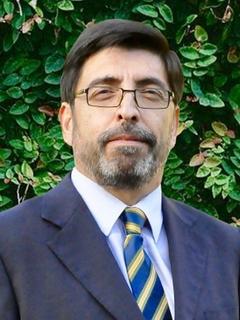
Date: Wed Aug 3, 2016
Time: 8:00 AM - 10:00 AM
Moderator: Stephen Searcy
It all started with the availability of Global Positioning Systems for civil services in 1988. In the same year variable rate applications of fertilizers were demonstrated in northern Germany and Denmark, which were globally the first of their kind and introduced a new era of agricultural production. The idea of Computer Aided Farming (CAF) was born. Only one year later the first yield maps were established. In 1992 at the Soil Specific Crop Management Workshop in Bloomington, Minnesota which later on signed with International Conference on Precision Agriculture the very first scientific presentation of a GPS assisted site-specific nutrient management was presented by the German pioneers. Since then the specialists developed for example innovative strategies for efficient soil and crop sampling, algorithms for the variable rate application of mineral and organic fertilizers providing a balanced nutrient input, and stationary remote sensing devices for the continuous surveillance of crops and soils. Though the tools are ready, the implementation of PA technologies has been only marginal. The reasons are complex data handling, weak system integration between manufacturers and an insufficiently high economic return of the investment which might change with full automation in agriculture.
A new context is emerging under introducing of precision agriculture, impacted by top-down ICT policies and bottom-up collaborative activities. Food chain is changing by a holistic technology policy of integration in the fields of breeding, farm production, processing, transportation, and market in consumers. A new ICT strategy was issued by the government for precision agriculture to enhance the interoperability and portability of data/information sets collected from the field. The administration focused on standardization of data/information protocol, common terminology to share the information and knowledge. Intellectual properties produced by collaboration of growers and industry, such patents and know-hows, are also issues to be handled. On the basis of a platform of agricultural information some value-chains should be produced. Agro-medical food is also an emerging program for value-added produce with a high function of encouraging the quality of lifestyle. The agricultural sector must be changed into suppliers of fairly controlled products to the medical sector, which requires controlled protocols of production with traceable management. The medical sector confirms the evidence of effectiveness against disease prevention and wellness in medical science. The nutrition and dietetics sector provides personalized diets using agro-medical foods. The business sector commercializes agro-medical foods and diets. The engineering sector provides bio-sensing and control technology to manage the system and communicate beyond disciplines.
_natural.jpg)
Precision agriculture (PA) is being developed in Chile since 1997. Today there are approximately 20 companies providing products and services in PA at different levels. Most of them are young entrepreneurships which have important knowledge gaps, particularly on technology basis and data management to transform them into useful information.
In order to help closing some of the gaps, and contributing to the development of an innovation ecosystem, an extension proposal was developed, which was funded by the Chilean Development Agency (CORFO). The project has the following objectives: 1) to detect the technological needs of the Chilean exporting agriculture in terms of information and communication technologies (ICT) in order for the emerging companies to develop suitable products and services; 2) to upgrade the participating companies in sensor technologies applicable to agriculture and agribusiness; 3) to provide the participants the state of the art in terms of platforms, transmission and communication protocols for spatial data; 4) to train the participants in advanced spatial data management, monitoring technologies using UAVs, and availability data and tools for developing new PA applications and products. Together with these specific objectives, the platform will inform the agricultural market about technical, economic, social and environmental benefits of precision farming, help linking beneficiary companies with the emerging international network of companies and investors in new technologies for agriculture, train the participating companies on the export of their services and products to emerging markets opportunities in Latin America, and establish the basis for creating an environment of collaborative innovation among the participating companies, new companies interested, startups, research centers, universities and technical institutes, investors and users, among others.
The objectives are being accomplished through the use of diffusion media including a farmer’s magazine (RedAgricola), a web page (www.agtechchile.cl), and several classroom and field training activities, including short courses, workshops, seminars and field days. In total, > 8 activities are being developed during the 15-month project with the help of the outstanding national and international PA experts. To measure the success of the project, several objective indicators are being used.

